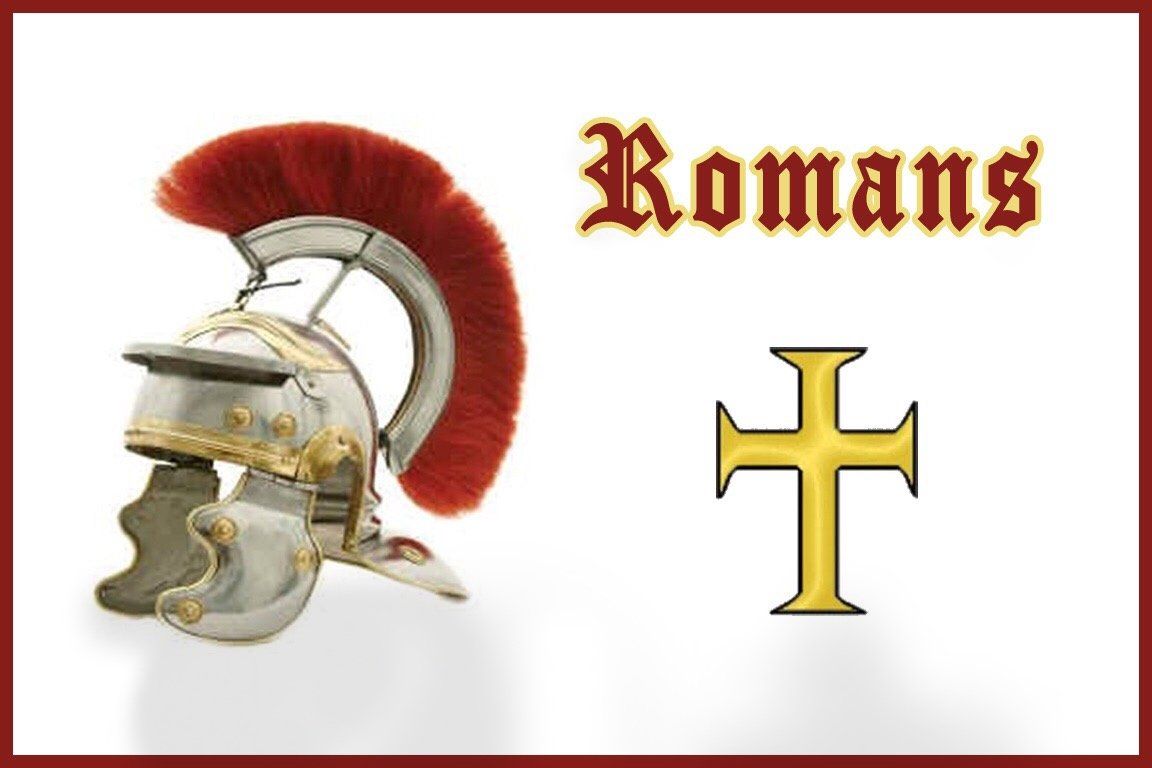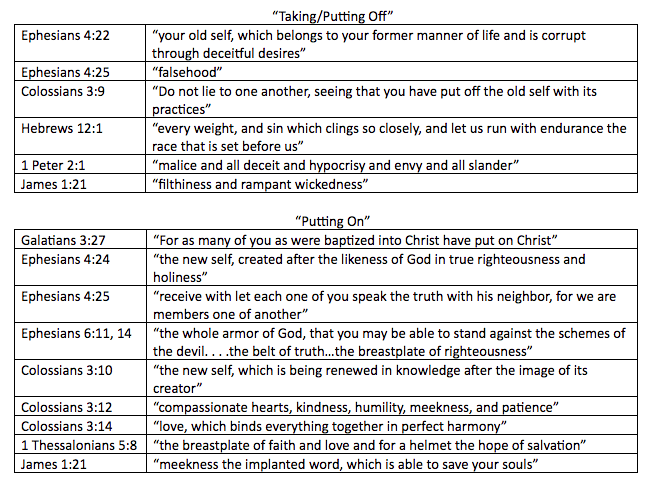
Citizenship
Romans 13:1-14
Brief Commentary
Introduction: “A new kind of community” is the theme of Romans 12:1-15:13. Having taken us on a “tour de force” of theology—the gospel, sin, salvation, sanctification, and the relationship of Israel/Gentiles, Paul wants to explain how these theological truths lead to a new kind of community.
Following spiritual worship (12:1-8) and authentic love (12:9-21), Paul brings attention to citizenship (13:1-14), the third characteristic of this new kind of spiritual community. The theme of citizenship can be divided into three parts: citizens of the state (13:1-7), citizens to our neighbors (13:8-10), and citizens of God’s kingdom (13:11-14).
Citizens of the State (13:1-7)
13:1: Theology’s impact is not limited to personal and private matters of faith. In fact, one’s theology should also inform his/her politics as well. Romans 13:1-7 is not a political treatise per se, but it does provide a general framework for engaging with our governing authorities.
It’s important to note that Scripture testifies to God’s people under the rule of foreign authorities throughout Israel’s history including Egypt, Babylon, Persia, and Rome (Assyria conquered the northern kingdom but they “disappear” from the biblical record).
Some may question Paul’s teaching on the grounds that it’s not practical for today because of our current political landscape. When Paul wrote his letter to the Church in Rome (55-57 AD), Nero was the emperor of Rome (54-68 AD). Not only was Nero an immoral emperor, but he also blamed the fire of Rome on Christians, who were then unjustly punished.
Paul’s teaching is not based on the cultural and political climate of his time, but rather, on God’s nature and call for Christians to be good and just citizens. As citizens of the state, we are commanded to “be subject to the governing authorities.” (13:1; cf. 1 Peter 2:13-17) According to Pate, the word subject (hypotasso) “conveys the idea of getting in one’s place in a hierarchal role.” (255)
All governing authorities have received their “authority” from God (13:1) and have been “instituted by God” (13:1) and “appointed” by God (13:2). God gives rulers and governments their authority and power (Psalm 22:28; Proverbs 8:15-16; Jeremiah 27:5-6). Jesus himself declared to Pilate, “You would have no authority over me at all unless it had been given you from above.” (John 19:11)
13:2-3: Because our governing authorities receive their authority from God, we should not (as a general principle) resist them because them we would be resisting “what God has appointed.” (13:2) In fact, those who resist (and don’t subject themselves to their governing authorities) “will incur judgment” (13:2: judgment from both God and our government).
Paul explains that our governing authorities “are not a terror to good conduct, but to bad.” (13:3). We should “fear” our governing authorities since they could punish our civil disobedience (13:4; see discussion below). In short, Paul exhorts us to live as good, moral, and responsible citizens.
13:4-5: Our governing authorities are “God’s servants” and promote the “good” of society (order, peace, justice, values). Again, Paul warns us about doing “wrong” because the state “does not bear the sword in vain” (it will punish rebellious behavior). As God’s avenger, they will dispense His “wrath on the wrongdoer.”
We should submit to our governing authorities in order “to avoid God’s wrath” and a guilty “conscience.” (13:5) Stott summarizes the basic role of our governing authorities: “Thus the state’s functions are to promote and reward the good, and to restrain and punish evil.” (344)
13:6-7: Paul concludes with two responsibilities. First, we are to pay taxes. In this historical context, Rome had people pay direct (property, poll) and indirect taxes (customs, duties, toll, various services) (Pate, 255). We should pay our taxes because they support the services provided by the state. Second, we should respect and honor our governing authorities because they’ve been appointed by God and serve as agents of God (cf. 1 Timothy 2:1-2; 1 Peter 2:13-17).
Citizenship and Civil Disobedience
Romans 13:1-7 encourages Christians to respect/honor, submit, and obey our governing authorities because they promote the goodness of society and serve us. But, what do we do when our governing authorities are unjust, oppressive, and immoral? In these cases, God does not (necessarily) call us to submit to our governing authorities.
Sometimes, civil disobedience is right thing to do. Let’s take a brief look at two examples from the book of Daniel that speak to the issue of citizenship and civil disobedience.
The book of Daniel highlights God’s authority and power over Nebuchadnezzar, the King of Babylon (2:21, 37-38; 4:17, 25, 32; 5:21). Daniel’s interpretation of Nebuchadnezzar’s dream (gold, silver, bronze, iron) underlines God’s authority and power over the mighty nations of the world (2:31-45; traditionally, these pieces of metal have been interpreted as Babylon, Persia, Greece, and Rome).
In Daniel 3, Shadrach, Meshach, and Abednego disobeyed Nebuchadnezzar’s decree to bow down and worship the golden image and were thrown into the fiery furnace (God protected them and they survived). In Daniel 6, Daniel rejected the decree to pray only to King Darius (Persia conquered Babylon) and was thrown into the lion’s den (God protected him).
We should also note that all four—Shadrach, Meshach, Abednego, and Daniel had high ranking official jobs in the government. From these two stories, we can observe five principles about Christians and civil disobedience. First, Christians are called to obey God first and foremost (cf. Acts 4:1-22: Peter and John disobeyed the rulers who warned them not to speak and teach about Jesus).
Second, civil disobedience is permissible when the government calls us to sin (cf. Exodus 1:15-21: Hebrew midwives disobeyed Pharaoh’s command to kill Jewish male babies). Third, civil disobedience is permissible when we are upholding justice, goodness, and mercy (cf. 1 Kings 18: The Prophet Obadiah hid and protected one hundred prophets).
Fourth, our civil disobedience should be expressed non-violently and peacefully. (Only on rare and exceptional cases should we consider actions that may promote a more “physical” or “volatile” confrontation with our government officials, but this is according to each person’s conscience.) Fifth, we must be ready to accept the consequences and punishment for our civil disobedience.
Citizens to Our Neighbors (13:8-10)
13:8: In 13:6-7, Paul exhorted us to pay our taxes because it’s something that we owe the government. It’s our duty to pay taxes. Likewise, it’s our duty to love our neighbor (Leviticus 19:18; Matthew 22:39).
In this new kind of spiritual community, Paul places love at the center of our relationships. Love is the only thing that we owe our neighbors. We can never love our neighbors enough because we can always love our neighbors more.
Our love for our neighbor fulfills the law because love is central to the law. It’s erroneous to view the law as a mere collection of cold and inflexible commands. In fact, love is the foundation of the law. Jesus summarized the two greatest commandments with love (Matthew 22:37-39).
Paul provides four examples to show how love fulfills the law. We should not commit adultery, murder, steal, or covet (see Exodus 20:13-17). Stott explains: “All these [adultery, murder, steal, covet] do harm (kakos, evil) to the neighbor, whereas it is the essence of love to seek and to serve our neighbor’s highest good. That is why love is the fulfillment of the law.” (360; cf. Galatians 5:14).
Citizens of God’s Kingdom (13:11-14)
13:11: Pate notes the strong eschatological element in 13:11. The words “time,” “hour has come,” and “salvation is nearer to us now than when we first believed” “indicate that salvation and the end time have already dawned for the believer.” (263) Christians live in the “already, not yet” age of the kingdom.
Christians live in a tension between this present age and the future one. On the one hand, the full manifestation of God’s kingdom is future (not yet), but on the other hand, its’s “already” here in several ways including Jesus reigning in our hearts, the Spirit’s presence and power, the preaching of the gospel, and God’s power for delivering us from our sins.
The idea of being citizens of heaven (Philippians 3:20-21) also reflects this already, not yet aspect of the present and future age. Because we are spiritually united with Christ, we are already (spiritually speaking) in heaven, but we have not yet experienced the fullness of our kingdom citizenship.
13:12: Using the metaphors of night and day, Paul encourages us to “cast off the works of darkness” and “put on the armor of light.” We can only walk in the light because we have placed our faith in Jesus, the ultimate light in the darkness (Matthew 4:16; Luke 1:79; John 1:5; 3:19; 12:35; 12:46; 2 Corinthians 4:6; 1 Peter 2:9; 1 John 1:5-6; 2:8).
Darkness and light depict the spiritual tension and spiritual conflict that Christ-followers experience on an everyday basis (John 12:35; Acts 26:18; Romans 2:19; 2 Corinthians 6:14; Ephesians 5:7-21; 6:11-18; Colossians 1:13; 1 Thessalonians 5:1-11; 1 John 2:8-11).
13:13-14: Continuing this idea of darkness and light, we are exhorted to “walk properly…in the daytime” by not committing acts of darkness (orgies, drunkenness, sexual immorality, sensuality, quarreling, jealousy) (13:13). Instead, Christians should “put on” Christ (follow his lifestyle) “and make no provision for the flesh to gratify its desires.” (13:14)
This theme of taking/putting off our fleshly desires and putting on our clothes of righteousness/habits of holiness is a key theme in the New Testament. Justin Taylor highlights this teaching in “Putting on Christ/Putting Off Sin” in The Gospel Coalition (June 9, 2011): https://www.thegospelcoalition.org/blogs/justin-taylor/putting-on-christ-putting-off-sin/
Reflection
Back
1. Why should Christians submit (subject) themselves to their governments? To what extent (if any) are there exceptions to this teaching? (See the section on Citizenship and Civil Disobedience.)
2. According to Paul, what’s the importance of paying taxes to our government?
3. How does loving our neighbor fulfill the law?
4. Identify some practical ways for you to love your neighbor. When will you put this into practice? Find someone to keep you accountable.
5. Discuss the theological truth of “already, not yet.” What are some of the key elements of this teaching?
6. This week make a commitment to pray for our President, our government, and local political leaders. Ask God to use our elected officials to serve with humility and to pursue justice, peace, and mercy (Micah 6:8).
7. What are you going to "put off" and "put on" this upcoming week? How does this kind of citizenship impact your family, neighbors, classmates, and neighbors?

